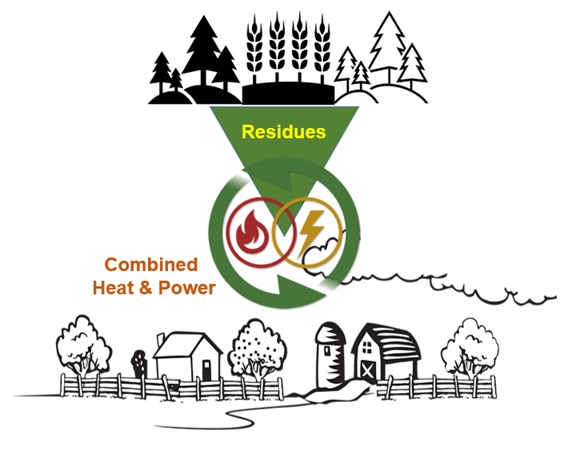Bagley College of Engineering COVID-19 Guidelines DETAILS
Resilient Biomass-Combined Heat And Power Systems For Rural Communities

Combined heat and power (CHP) systems offer higher energy gains while improving energy supply reliability and reducing energy costs and environmental footprint. Although CHP technologies have been widely studied using different fuel sources, the potential of biomass CHP (bCHP) systems in rural communities has received very little attention. Moreover, bCHP deployment in these areas is hindered by several challenges, namely, unclear value to exisitng or new utilities or end-users, limited CHP supply infrastructure, market and non-market uncertainties, lack of end-user awareness and economic decision-making tools.
This research and extension project will consider the state of Mississippi as a case study to: (i) delineate the energy needs and bCHP potential of selected rural communties; (ii) determine costeffective biomass feedstock supply-chain options and process design configurations; (iii) develop resiliency strategies for bCHP systems to withstand extreme events and natural disasters; and (iv) increase the knowledge and awareness of bCHP systems among utility stakeholders.
We will first examine the regional rural energy needs and biomass integrated CHP potential to feed into a biomass supply chain logistics model to support bCHP facilities. Then, we evaluate various methods of assessing and for achieving resiliency and sustainability of bCHP systems in rural communities accounting for a higher degree of complexity inherent of individual process configurations. Finally, a community and stakeholder engaged participatory multi-criteria analysis will be used to understand the decision-making logistics of end-users. A new Extension program will be developed to disseminate the outcomes from this project through various professional venues, including a dedicated website.
